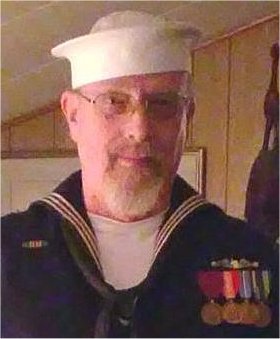
Plankowner
Posts: 9165
Location: Upper lefthand corner of the map. | Subject: Bravo Zulu
Bravo Zulu


The bravo and zulu signal flags
Bravo Zulu is a naval signal, conveyed by flaghoist or voice radio, meaning "Well Done"; it has also passed into the spoken and written vocabulary. It can be combined with the "negative" signal, spoken or written NEGAT, to say "NEGAT Bravo Zulu", or "not well done".
There are some myths and legends attached to this signal. One of the most frequently heard has Admiral "Bull" Halsey sending it to ships of Task Force 38 during World War II. Another story, current in the navies of the Commonwealth is that it was an improvised signal to HMS Zulu, during the same war, after that ship performed some conspicuous feat of gallantry. Neither of these stories can be true, as the signal did not exist at that time. A third legend is that Bravo Zulu was used in the Royal Navy as the flag signal for "issue an extra tot of rum to the crew."
"Bravo Zulu" actually comes from the Allied Tactical Publication (ATP) 1 Vol 2 series (Naval Book of Signals), an international naval signal code adopted after the North Atlantic Treaty Organization (NATO) was created in 1949. Until then, each navy had used its own signal code and operational manuals. World War II experience had shown that it was difficult, or even impossible, for ships of different navies to operate together unless they could readily communicate, and ACP 175 was designed to remedy this.
In the U.S. Navy signal code, used before ACP 175, "well done" was signaled as TVG, or "Tare Victor George" in the U.S. radio alphabet of that time. ACP 175 was organized in the general manner of other signal books, that is, starting with 1-flag signals, then 2-flag and so on. The 2-flag signals were organized by general subject, starting with AA, AB, AC, ... AZ, BA, BB, BC, ... BZ, and so on. The B- signals were called "Administrative" signals, and dealt with miscellaneous matters of administration and housekeeping. The last signal on the "Administrative" page was BZ, standing for "well done".
At that time BZ was not rendered as "Bravo Zulu", but in each navy's particular radio alphabet. In the U.S. Navy, BZ was spoken as "Baker Zebra". In the meanwhile, the International Civil Aviation Organization (ICAO) had adopted English as the international air traffic control language. They developed a radio alphabet for international aviation use, designed to be as "pronounceable" as possible by flyers and traffic controllers speaking many different languages. The U.S. Navy adopted this ICAO alphabet in March 1956. It was then that "Baker Zebra" finally became "Bravo Zulu".
|

 Bravo Zulu
Bravo Zulu